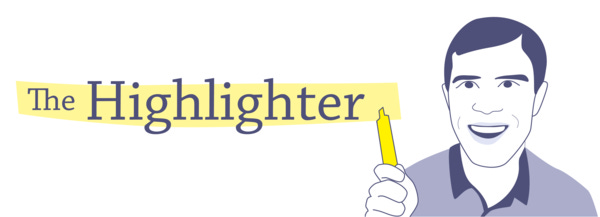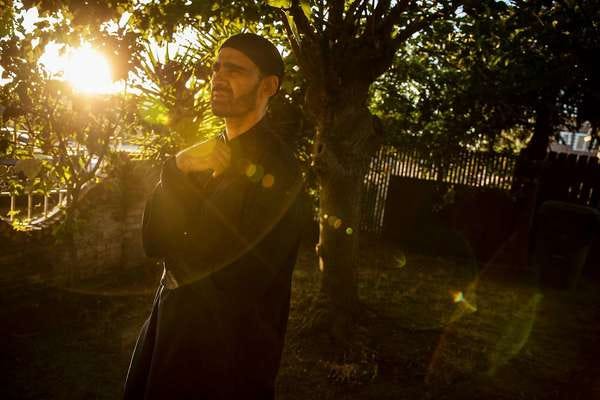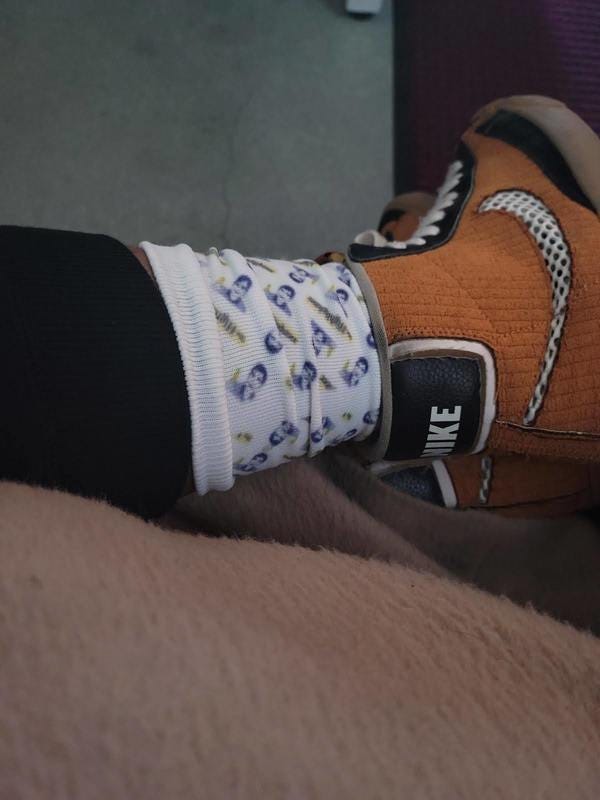#334: He Paid For America’s Fear

Happy Thursday, loyal readers. Thank you for opening this week’s issue.
I was reminded last Thursday at HHH of the kindness and joy of our reading community (photo evidence here and here and here). As usual, our gathering was sold out! I’m looking for (non-Zoom) ways to bring together loyal readers who don’t live in the Bay Area. After all, reading is often made better in conversation with other thoughtful and generous people. I’d love to hear your ideas.
The first two articles in this week’s issue discuss the power of fear in our society. This lead article, “He Paid For America’s Fear,” tells the story of Hamid Hayat, born an American citizen of Pakistani descent, who was swept up by the FBI after 9/11 and wrongfully convicted of terrorism. If you can, please read this piece along with “The United States Is Not A Nation Of Immigrants,” which explores our country’s longstanding xenophobia and fear of enemy invasion. Rounding off today’s issue are a statistical and analytical takedown of the U.S. News and World Report’s college rankings and a heartfelt and personal reflection on fatherhood by a man living with cancer.
I hope that you’ll read one or more of these pieces and that you have a great (reading-filled) weekend coming up!

Hamid Hayat was born in Lodi, California, spent his childhood in Pakistan, and was locked up for 14 years in a secretive prison in Indiana after being wrongfully convicted of terrorism after 9/11. In this special report, investigative reporter Jason Fagone tells Mr. Hayat’s story in comprehensive detail, focusing on our country’s Islamophobia and the pressure our government faced to incarcerate suspected terrorists without sufficient evidence or fair trials.
Mr. Fagone writes: “His country once looked at him and imagined a terrorist. Americans feared his anger, and for that, he lost nearly everything. So if he does feel anger now, he isn’t free to show it. He still worries what co-workers and neighbors will think when they learn about his story. He still feels the need to show that he has a good heart, a good mind. He is still afraid of America’s fear.” (75 min)
+ Mr. Fagone is is well known around these parts. He wrote “Love And Loss In the Age Of AI” (Issue #306), “The Race Realist on Campus,” (Issue #300), and my favorite, “Jerry and Marge Go Large,” one of the best articles of 2018. I got to interview Mr. Fagone in July 2020 for Article Club.
The United States Is Not “A Nation of Immigrants”
“The United States has never been a nation of immigrants,” argues Prof. Roxanne Dunbar-Ortiz in this well-written essay, in which she explores the problems of multiculturalism and assimilation. Instead, at the core of American history is settler colonalism. Efforts of inclusion, including diversity training, the notion of “people of color,” and “the production of Hamilton,” amount to the erasure of Indigenous peoples and “arrivants,” which include enslaved Africans, refugees, and immigrants forced out of their homelands. (15 min)
+ Prof. Dunbar-Ortiz is the author of An Indigenous Peoples’ History of the United States.

VIP Mahogney made a wise decision to stay for last week’s HHH grand prize raffle, in which she won The Highlighter Socks. You too can win these soft and stylish feet companions! The next HHH is Thursday, June 2.
How Columbia University Gamed The U.S. News And World Report Algorithm
If you like statistics, and if you don’t like the snootiness of elite college rankings, then you’ve come to the right place. Michael Thaddeus, a professor of Mathematics at Columbia University, breaks down how the school has soared to the top of the U.S. News and World Report. (The answer? Fudged numbers + inaccurate data + tons of money). “Students are poorly served by rankings,” Prof. Thaddeus writes. “No one should try to reform or rehabilitate the ranking. It is irredeemable.” (Ivy Day is March 31 this year.) (20 min)
Fatherhood, Cancer, And What Matters
Jonathan Tjarks is 34 years old and has metastatic Ewing’s sarcoma, a rare and aggressive cancer. But instead of brooding about his illness, Mr. Tjarks focuses on how he can best raise his 2-year-old son Jackson, who loves cars because they’re fast. Having cancer “leaves you with a lot of time to think,” he writes. “I usually end up thinking about my son.” Mr. Tjarks also thinks about his dad, who died early of Parkinson’s, and the importance of investing in friendships at his church, in order to build supports for his son after he’s gone. (12 min)
Thank you for reading this week’s issue of The Highlighter. Did you enjoy it? Let me know by clicking on “Yes” or ”No” below. I like hearing from you.
To our five new subscribers – Virgil, Beatrice, Rina, Moster, and Chris – I hope you find the newsletter a solid addition to your email inbox. To our long-time subscribers (Craig! Carina! Char!), you’re pretty great, too. Loyal reader Kim, thank you for sharing the newsletter and getting the word out.
If you like The Highlighter, please help it grow. I appreciate your support. Here are a few ways you can help:
📬 Forward today’s issue to a friend and tell them to subscribe
☕️ Buy me a coffee to express your gratitude
❤️ Become a VIP member to lock in your support
On the other hand, if you no longer want to receive this newsletter, please unsubscribe. See you next Thursday at 9:10 am PT.
Don’t miss out on the other issues by Mark Isero
Become a member for $3 per month
You can manage your subscription here.
In order to unsubscribe, click here.
If you were forwarded this newsletter and you like it, you can subscribe here.
Created with Revue by Twitter.




